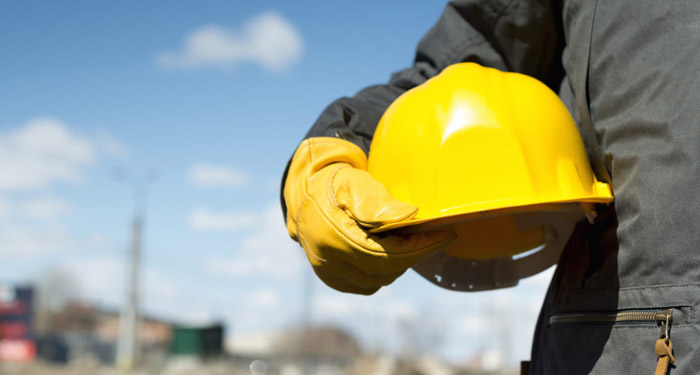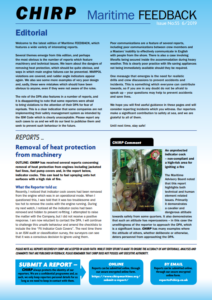The CHIRP Charitable Trust published Maritime Feedback 55. This is the second bulletin of 2019, and it focuses on reports regarding, machinery and technical issues. engine room heat protection, main engine failures, communications and violation of rest hours.
A number of themes are emerging from the latest edition, with the most obvious being reports about machinery and technical issues. The bulletin informs about the dangers of removing heat protection, and ways in which main engine failures can be avoided.
[smlsubform prepend=”GET THE SAFETY4SEA IN YOUR INBOX!” showname=false emailtxt=”” emailholder=”Enter your email address” showsubmit=true submittxt=”Submit” jsthanks=false thankyou=”Thank you for subscribing to our mailing list”]
MARPOL violations are also covered, while rudder angle indicators appear again. Moreover, there are several examples of poor design, and these mistakes ‘should have been obvious to anyone, even if they were not aware of the rules.’
The role of the DPA also features in various reports, with CHIRP saying that it is disappointing to note that some reporters were too afraid to bring violations to the attention of their DPA for fear of reprisals.
This is a clear indication that some companies are not implementing their safety management system as intended by the ISM Code which is clearly unacceptable
In addition, poor communications also feature in numerous reports, including poor communications between crew members and a Masters’ inability to effectively communicate in English with people from the shore.
What is more, the bulletin includes a case were liferafts were secured inside the accommodation during heavy weather. According to CHIRP, this is poor practice, as the life saving appliances were not immediately available if they were needed.
Finally, one message that is clear is the need for realistic drills and crew discussions to prevent accidents and incidents.
This is something which everyone can contribute towards, so if you are in any doubt do not be afraid to speak up – your questions may help to prevent accidents and save lives
CHIRP concludes.
You may see more details in the PDF herebelow































































